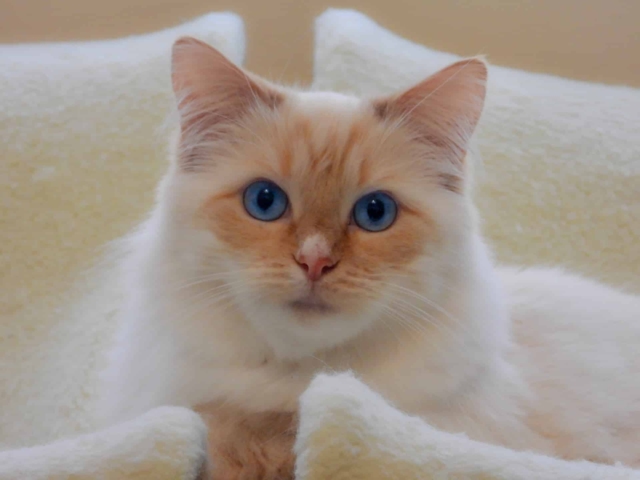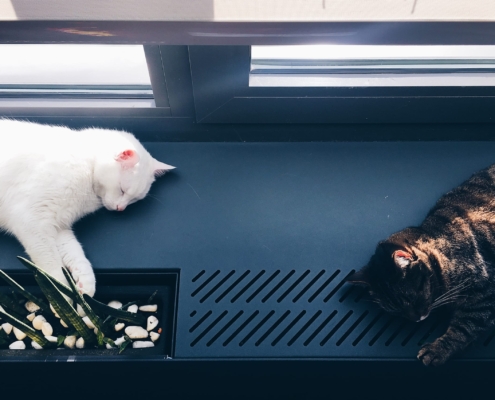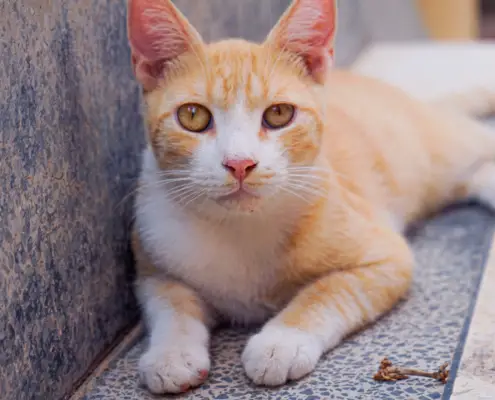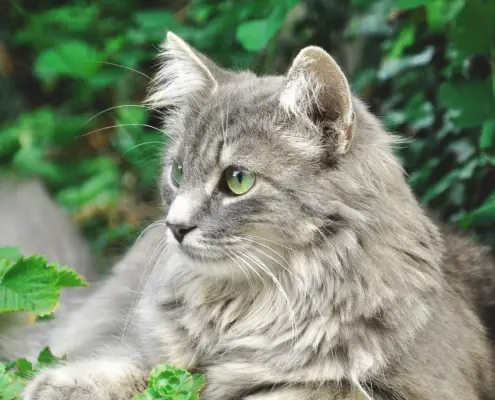
Cats are known for their sleek and beautiful coats, but just like humans, they can also suffer from skin issues. One common skin problem that cats can experience is acne. Yes, you read that right – cats can get acne too! In this article, we will delve into the world of feline skincare and explore the causes, symptoms, and management of feline acne. Whether you are a concerned cat owner or a veterinary professional, this article will provide valuable insights into this often misunderstood condition.
Understanding Feline Acne
Feline acne is a condition that affects the hair follicles on a cat’s chin and lips. It is characterized by the formation of small, blackheads or whiteheads, which may be accompanied by redness, swelling, and itching. Although feline acne is more common in certain breeds, such as Persians and Himalayans, it can occur in cats of any breed or age.
The exact cause of feline acne is still unknown, but it is believed to be multifactorial. Factors such as poor grooming habits, stress, allergies, and hormonal imbalances may contribute to the development of acne in cats. Additionally, certain plastic food bowls can harbor bacteria and irritate the chin, leading to the formation of acne lesions.
Causes and Symptoms of Feline Acne
Feline acne can have various causes, and understanding them is crucial for effective management. One of the primary causes of feline acne is poor grooming habits. Cats are meticulous groomers, and if they are unable to clean their chin and lips properly, it can lead to the accumulation of dirt, oil, and dead skin cells, resulting in acne formation.
Stress is another significant factor that can contribute to feline acne. Cats are sensitive animals, and any changes in their environment or routine can cause stress. This stress can manifest as feline acne, as it disrupts the normal functioning of the sebaceous glands in the chin area.
The symptoms of feline acne can vary from mild to severe. In mild cases, you may notice small blackheads or whiteheads on your cat’s chin or lips. These may or may not be accompanied by redness or swelling. In more severe cases, the acne lesions can become inflamed and infected, leading to discomfort and pain for your feline friend.
Diagnosing Feline Acne
If you suspect that your cat has acne, it is essential to consult a veterinarian for a proper diagnosis. The vet will examine the affected area and may perform additional tests, such as a skin scraping or bacterial culture, to rule out other possible causes of the skin lesions.
During the examination, the vet will also evaluate your cat’s general health and look for any underlying conditions that may be contributing to the acne. This comprehensive approach is crucial for developing an effective treatment plan and managing the condition appropriately.
Managing Feline Acne at Home
While feline acne can be bothersome, the good news is that it can often be managed at home with simple interventions. The first step in managing feline acne is to ensure proper hygiene. Regularly clean your cat’s chin and lips with a mild, cat-friendly cleanser. This will help remove any dirt, oil, or dead skin cells that may be contributing to the acne formation.
Additionally, it is important to provide your cat with a clean and hygienic environment. Avoid using plastic food bowls, as they can harbor bacteria and irritate the chin. Instead, opt for stainless steel or ceramic bowls that are easy to clean and sanitize.
If your cat’s acne lesions are inflamed or infected, your veterinarian may recommend the use of topical or oral medications. These medications can help reduce inflammation, control bacterial overgrowth, and promote healing. It is crucial to follow your vet’s instructions carefully and complete the full course of treatment to ensure optimal results.
Natural Remedies for Feline Acne
In addition to conventional treatments, there are also several natural remedies that can help manage feline acne. Tea tree oil, diluted with water, can be used as an antiseptic and applied topically to the affected area. Aloe vera gel can also be beneficial in reducing inflammation and promoting healing.
Another natural remedy is witch hazel, which has astringent properties and can help cleanse the skin. Simply apply witch hazel to a cotton ball and gently wipe the affected area. However, it is essential to consult your veterinarian before using any natural remedies, as some may be toxic to cats or interact with other medications.
Visiting the Veterinarian for Feline Acne
While home management can be effective for mild cases of feline acne, it is important to seek veterinary care for more severe or recurrent cases. A veterinarian will be able to assess the severity of the condition and recommend appropriate treatment options.
During the veterinary visit, the vet may perform additional tests, such as a skin biopsy or blood work, to rule out underlying conditions that may be contributing to the acne. They may also prescribe antibiotics or other medications to help manage the condition effectively.
Preventing Feline Acne
Prevention is always better than cure, and the same holds true for feline acne. To prevent acne in your cat, it is crucial to maintain good hygiene and cleanliness. Regularly clean your cat’s chin and lips with a cat-friendly cleanser, and ensure that their food and water bowls are clean and hygienic.
If your cat is prone to stress, try to minimize environmental changes and provide a calm and stable environment. Additionally, using stainless steel or ceramic bowls instead of plastic can help prevent bacterial overgrowth and irritation.
Other Skin Conditions in Cats
While feline acne is a common skin condition in cats, there are other skin issues that can affect our feline friends. These include allergies, fungal infections, parasites, and autoimmune disorders. If you notice any changes in your cat’s skin, such as excessive itching, hair loss, or redness, it is important to consult a veterinarian for a proper diagnosis and treatment.
Conclusion
Feline acne is a common and often misunderstood condition that can affect cats of any breed or age. Understanding the causes, symptoms, and management options for feline acne is crucial for providing the best care for our feline companions. By maintaining good hygiene, using appropriate treatments, and seeking veterinary care when necessary, we can help keep our cats’ skin healthy and free from acne. So, the next time you see those little blackheads on your cat’s chin, remember that with the right care and attention, feline acne can be managed effectively.
If you suspect that your cat may have acne or any other skin condition, consult a veterinarian for a proper diagnosis and treatment plan.
If you enjoyed my article, I would appreciate you sharing it with your network.

Sima Ndlebe
Sima writes for CatBuzz. He is interested in Cats, Health and Fitness, and Entrepreneurship.
Published: 30 October 2023
Related Articles
Disclaimer
The content found on CatBuzz.org is presented on an "as is" basis and is intended for general consumer information and education purposes only. Any utilization of this information is voluntary and solely at the user's own risk.
None of the articles or content should be regarded as, or used in place of, veterinary medical advice, diagnosis, or treatment. The information provided on the website is purely for educational and informational intentions and should not be considered a substitute for professional guidance from a veterinarian or other qualified expert. The articles are designed to inform consumers about veterinary healthcare and medical matters that may impact their cat's daily life. It should be noted that this website and its services do not constitute the practice of any form of veterinary medical advice, diagnosis, or treatment. CatBuzz.org explicitly disclaims any liability for any direct or indirect damages or losses that may arise from the use of or reliance on the information contained within the content.
Consumers must consult a veterinarian, veterinary specialist, or another qualified veterinary healthcare provider when seeking advice regarding their cat's health or medical conditions. It is important not to ignore, avoid, or postpone seeking medical advice from a veterinarian or other qualified veterinary healthcare provider solely based on information obtained from this website. If you believe that your cat may be experiencing a medical issue or condition, it is imperative to promptly contact a qualified veterinary healthcare professional.




